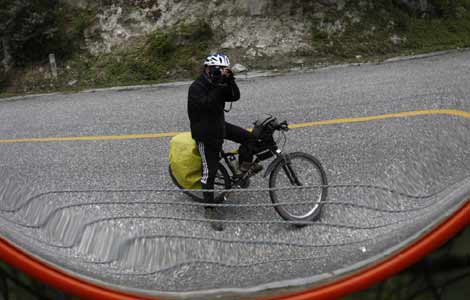Libya mission 'pretty close' to end: NATO chief
Updated: 2011-10-04 07:32
(Xinhua)
|
|||||||||
BRUSSELS - The Libya mission is "pretty close" to its end, however, NATO defense ministers are not expected to terminate the mission as they convene this week, the head of NATO said on Monday.
"We will discuss the Libya operation, but I don't expect any decision on the termination of the operation..We are pretty close to the end of this operation, but as you know, we have decided to extend the operation by up to 90 days," Anders Fogh Rasmussen told reporters.
"We will review the operation on a regular basis, so we stand ready to terminate it as soon as the situation allows," he said.
Rasmussen said the decision to end the mission would be based on "a comprehensive military assessment and close coordination with the United Nations and the new authorities in Libya."
A senior NATO official reportedly acknowledged some 10,000 ground-to-air missiles were missing in Libya, which represented "a serious threat to civil aviation."
Rasmussen said "it is a matter of concern if stockpiles of weapons are not properly controlled and monitored" and the Libyan NTC (National Transitional Council) had the responsibility of securing the weapons.
Some NATO countries are in contact with the NTC to ensure the issue to be addressed effectively, he said.
At the ministerial meeting on Wednesday and Thursday, defense ministers from 28 NATO countries will also discuss how to cooperate on building up capabilities in an era of financial austerity.
"A task force has prepared a report on a number of concrete proposals, as how allies can cooperate on acquiring military capabilities as well as conducting running operations, like training, logistics, maintenance of military equipment," Rasmussen said.
"We will discuss a range of very concrete proposal...we will not make concrete decisions on concrete projects at this meeting, but we will ensure that work can continue with a view to the summit in May," he said.
In addition, the NATO chief opposed the idea of establishing a new EU military headquarters, which are actively supported by five countries, including France, Germany, Poland, Italy and Spain, but drew strong opposition from Britain.
"I don't think we need new headquarters...I think we need more hardware. We need to find ways and means to use our scarce resources better in the coming years to acquire necessary military capabilities," he said.










